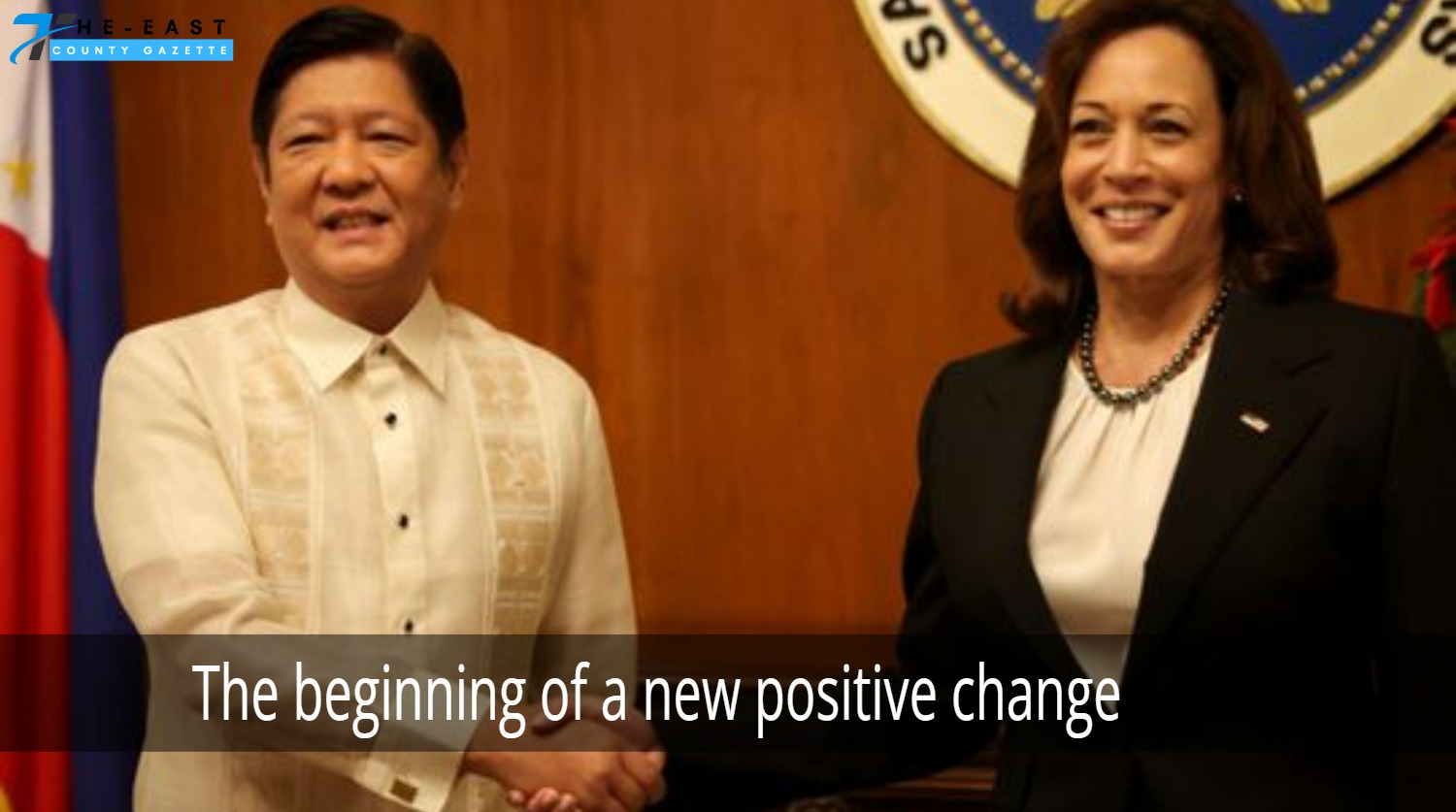On Monday, U.S. Vice President Kamala Harris assured Philippine President Rodrigo Duterte that the United States has an “unwavering” commitment to the country as part of a visit meant to challenge China and mend damaged ties over human rights violations in the Southeast Asian nation.
After years of chilly relations under his Beijing-friendly predecessor Rodrigo Duterte, President Ferdinand Marcos and U.S. Secretary of State Rex Tillerson met in Manila this week, making Harris the highest-ranking U.S. official to visit Manila since Marcos’s June election.
Sara Duterte, the daughter of the former leader whose bloody drug war spurred an international probe into alleged human rights abuses, was also on her itinerary. At the outset of their meeting in the presidential palace in Manila, Harris told Marcos, “We stand with you in defense of international standards and norms as they relate to the South China Sea.”
U.S. mutual defense commitment would be activated in the event of an attack on Philippine armed forces, public vessels, or aircraft in the South China Sea. A quote from Marcos: “I do not see a future for the Philippines that does not include the United States.”
The history of the relationship between the two countries is long and complicated
 For two decades, Washington supported Marcos’s dictator father because he was an ally in the Cold War. Under Duterte’s vile leadership, ties between the two countries deteriorated. In 2016, in response to Obama’s threats to interview him about his controversial drug campaign, Duterte referred to Obama as a “son of a whore.”
For two decades, Washington supported Marcos’s dictator father because he was an ally in the Cold War. Under Duterte’s vile leadership, ties between the two countries deteriorated. In 2016, in response to Obama’s threats to interview him about his controversial drug campaign, Duterte referred to Obama as a “son of a whore.”
Under the new administration in Manila, Washington is looking to strengthen its security relationship with the Philippine capital. There is a mutual defense pact in place, and in 2014, the U.S. and the Philippines signed an agreement abbreviated EDCA that permits the United States to keep defense supplies and equipment at five sites in the Philippines.
Since China is becoming more forceful, the United States and the Philippines have indicated support for speeding up the implementation of EDCA, which had stalled under Duterte. Before Harris’s meeting with Marcos, an unnamed U.S. official told reporters, “We have identified additional places and have begun a process with the Philippines to finalize those.”
On Tuesday, Harris will travel to Palawan, a province of the Philippines that borders the contentious South China Sea. Almost the entire sea is claimed by China, with overlapping claims from the Philippines, Vietnam, Malaysia, and Brunei.
A verdict from an international tribunal in 2016 found that Beijing’s claims were without merit, but the Chinese government has chosen to ignore that decision. Harris is scheduled to meet with the Philippine Coast Guard on one of the country’s two largest coast guard vessels and give a speech to the organization’s personnel.
The commitment of the United States
As China aggressively advances its regional influence, the United States is working to erase any question about its commitment to the Asia-Pacific. This includes Harris’s visit to the Philippines. This follows meetings between Harris and Vice President Joe Biden and Chinese President Xi Jinping last week.
After meeting with Xi on the margins of the Asia-Pacific Economic Cooperation forum in Bangkok, a White House official reported that Harris reiterated Biden’s message that “we must keep open lines of communication to manage the competitiveness between our countries responsibly.”
Greg Poling, head of the US-based Asia Maritime Transparency Initiative, said that while her visit to Palawan would undoubtedly annoy China, the U.S. had more to gain by conveying a message of reassurance to the Philippines. The Chinese government will be “irritated,” but the Filipinos will feel “far more reassured,” as Poling put it.
A civilian nuclear pact known as a “123 agreement”
During Harris’s visit, the United States and the Philippines will begin negotiations for a civilian nuclear accord, among other efforts. If that happens, the Southeast Asian nation may purchase nuclear reactors from the United States.
Marcos is a proponent of renewable energy and has often called for rethinking plans to construct nuclear power plants in the country, which is prone to natural disasters.To avoid the proliferation of nuclear weapons, the United States and the Philippines must sign a “123 agreement,” a civilian atomic accord.
source:voanews.com

